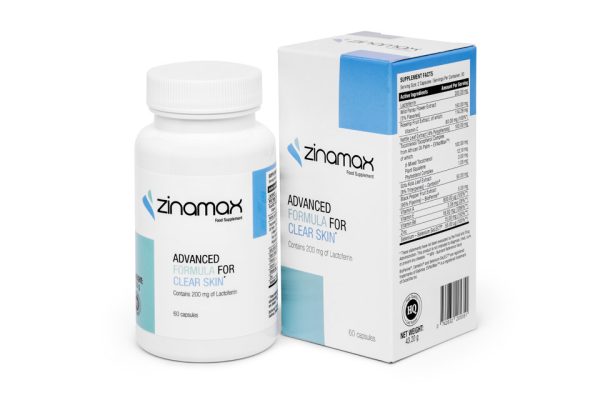A baby needs a lot of care, and as a parent, you want to ensure that they are in good health and overall well-being. The difficulty may lie in the fact that babies are incapable of talking or communicating their situation. However, if you are observant, you may notice a variety of signs that indicate your baby is healthy and doing well.
We have compiled a list of some signs of a healthy baby that will help you determine your baby’s well-being.
- They are sleeping well
As babies grow, their nervous system allows them to adapt to different schedules, including sleep. Sleep well is a sign that the child is happy and content. And if they sleep well, they will grow well.
While a baby’s sleep pattern may not be as steady as yours, they are able to sleep for 2-4 uninterrupted hours after they have been fed and cleaned. However, if a baby does not sleep its own hours properly and is crying more than usual, it may indicate a serious problem.
Often during birth, a newborn can face injuries like cerebral palsy and brachial plexus, which may go unnoticed without an examination. If left untreated, these injuries can also leave a permanent mark.
If your baby is showing any signs of discomfort, visit a doctor immediately. You can also seek professional guidance regarding the legal matter from the birth injury justice center.
2. Your baby is breastfeeding
As soon as you get anything close to your baby’s mouth, they will likely begin sucking it. Babies are born with an innate sucking reflex. It means that your baby has a good appetite and a healthy digestive system when he or she requires frequent feedings and has sucking urges. When a baby swallows milk, it will make a gulping sound and may sleep after a feeding session if he or she feels satiated.
3. Your voice and presence soothe your baby
You carry your baby for nine months, and during this time, your voice becomes an integral part of your baby’s existence. Even after the baby is born, they may listen to your voice and respond to it, which is a sign that they are developing emotionally.
It is evident that your baby is healthy and sound if you can soothe them when they are crying or if they pay attention to what you say.
4. Changing four to six diapers a day is normal
You can also tell how healthy your baby is by the way they urinate and defecate. It is common for babies to wet between four and six diapers a day, regardless of whether they are breastfed or on formula milk.
The fact that your baby is both fed well and properly hydrated is a clear indication that they are in good health. During the couple of weeks following birth, your baby will also gain considerable weight.
If, however, your baby wets fewer diapers or does not gain weight, they may not be fed adequately. In addition, babies with darker urine are more likely to be dehydrated.
5. Adequate weight and height
Your doctor measures your baby’s weight and height every time you bring them to the doctor. A baby’s weight may increase by 5 to 7 ounces, and their height may increase by 1 inch to 12 inches every week during the first six months.
The weight your baby achieves at one year old will be roughly three times that of his birth weight. Your doctor can tell you what your baby should weigh and how tall they should be.
6. A smile from your baby is a sign of love.
When babies are one month old, they can look at you and make eye contact. By the time they have reached two months of age, they can smile at you, and by the time they reach four months of age, they may giggle out loud. Your baby may return your smile after five months.
If your baby is making cooing or babbling sounds, it may be a sign that they are about to speak their first words. The fact that your baby is achieving these small milestones indicates that they are growing in a healthy way and are also aware of the world around them.
7. Your baby is observing various things in his environment
At birth, if your baby’s vision isn’t that good, everything may appear blurry to them. Nevertheless, as they grow, they become more aware of everything around them.
When your baby is born, their vision is limited to 8 to 12 inches only, but over time this increases gradually, and they start focusing on objects that are farther away.
If your baby has their gaze fixed on the ceiling, it means they are looking at the moving fan – a sign of healthy growth.
8. The child is responding to surrounding sounds.
A child can hear various sounds and noises when still in the womb, so they may be aware of them once they come out.
Although newborns cannot recognize sounds, their ability to recognize sounds will increase as they grow. There is a possibility that they will react to the sound of music, television, or even sounds from their toys.
If a baby is reacting to new sounds, it is a sign of healthy development.
9. Regular bowel movements
Even though it may seem strange, your baby’s poop can also give you a clue about his health. Different babies pass stool at different frequencies; some poop a few times per day, some once a week. You only need to pay attention to the softness of your baby’s stools and whether they are comfortable passing the stool.
10.Your baby is able to support his own weight
One-month-old babies can lift their heads briefly, and three-month-olds will be able to lift their heads for a longer time by lying on their tummies.
The fact that your baby is using his muscles and attempting to make different movements is a great indication that they have control over them.
When your baby is six months old, they will be able to roll on both sides, sit with support, crawl, stand, and walk with assistance by the age of one. When the baby exhibits all these signs, it suggests they are healthy.
Conclusion
Your baby is doing fine if he or she exhibits the signs mentioned above. However, it is highly recommended that you consult your doctor if you experience any developmental delays. A doctor can explain the underlying, allowing you to take the necessary steps to cure it.











